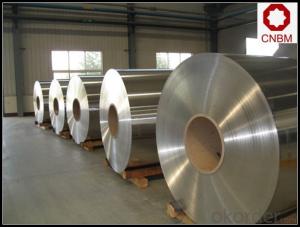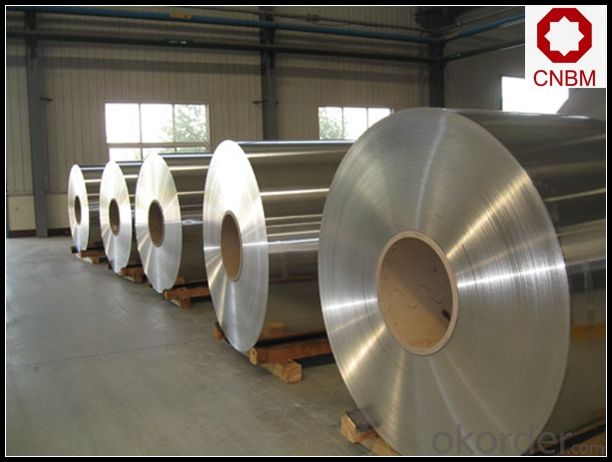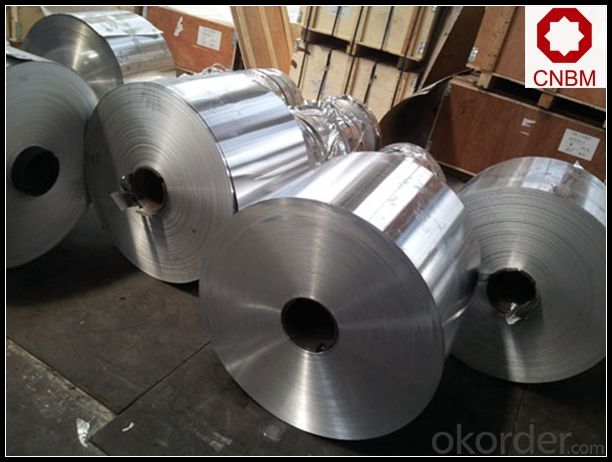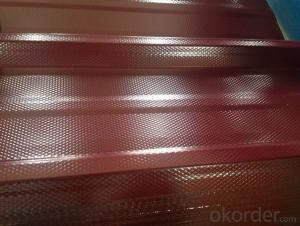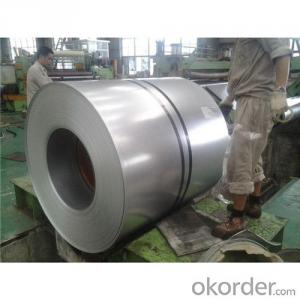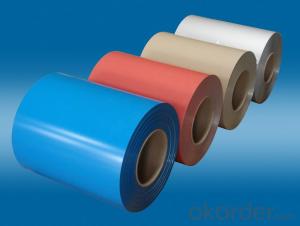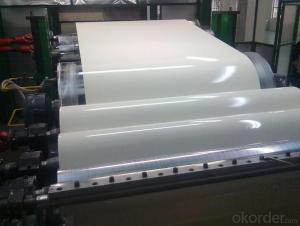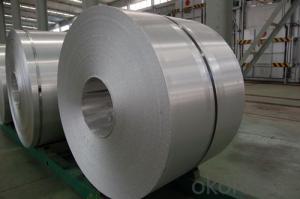Aluminum Strip Coil for Anodized Aluminum Roof Ceiling System
- Loading Port:
- Shanghai
- Payment Terms:
- TT OR LC
- Min Order Qty:
- 5 m.t.
- Supply Capability:
- 10000 m.t./month
OKorder Service Pledge
OKorder Financial Service
You Might Also Like
Specification
1. Specification of Anodized Aluminum Coil for Roof Ceiling Systerm
1) Alloy | 1050, 1060,1100, 3003 3004 3105 3A21 5005 5052 etc |
2) Temper | O/H12/H14/H1/H18/H32/H34/H36/H38//H111/H112/H116/H321/T6/T651/T3/T351 etc |
3) Thickness | 0.1mm to 6mm |
4) Width | 20mm to 3300mm |
5) Coil weight | 100kgs to 6 tons depends on actual requirement |
6) Core material | Aluminum or paper |
7) Coil Inner diameter | 75mm, 150mm, 200mm, 300mm, 405mm, 505mm or as required |
8) Protective film can be added
2. Application of Anodized Aluminum Coil for Roof Ceiling Systerm
(1).Interior: wall cladding, ceilings, bathrooms, kitchens and balconies, shutters, doors...
(2).Exterior: wall cladding, facades, roofing, canopies, tunnels,column covers , renovations...
(3).Advertisement: display platforms, signboards, fascia, shop fronts...
3. Feature of Anodized Aluminum Coil for Roof Ceiling Systerm
*Such coil is specially designed to replace aluminum ingot, due to the high export tax of aluminum ingot, the coil has better price than ingot.
*This type of coil can fit customer's remelting furnace just like ingot, no need to make any change to the production line that was previously used for ingot. The standard coil size and weight is very suitable for the feed gate of furnace.
*This type of coil causes less material wastage than ingot when remelted.
*Our coil is made directly from ore, no need to go though the ingot making process, quality is much better than other suppliers who use ingot scrap to make coil.
Be free from Oil Stain, Dent, Inclusion, Scratches, Stain, Oxide Dicoloration, Breaks, Corrosion, Roll Marks, Dirt Streaks and other defect which will interfere with use
4. Certificate:
SGS and ROHS(if client request, paid by client), MTC(plant provided), Certificate of Origin(FORM A, FORM E, CO), Bureau Veritas and SGS (if client request, paid by client), CIQS certificate
5. Image of Anodized Aluminum Coil for Roof Ceiling Systerm
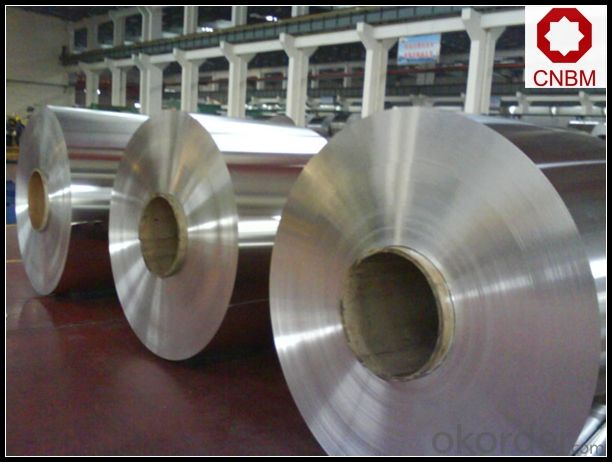
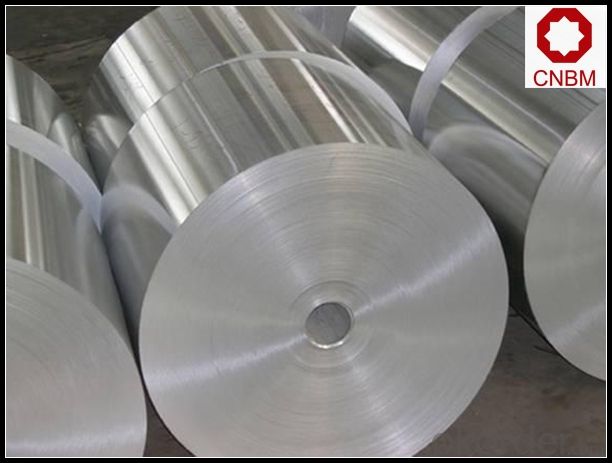
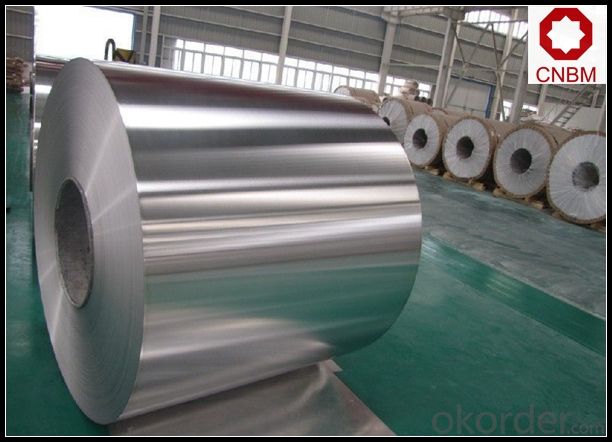
6. Package and shipping of Anodized Aluminum Coil for Roof Ceiling Systerm
eye to wall
eye to the wall
with wood pallet (wooded case also available)
7. FAQ
1) What is the delivery time?
Dpends on actual order, around 20 to 35 days
2)What is the QC system:
We have QC staff of 20 persons and advanced equipment, each production is with MTC traced from Aluminum ingot lot.
3) What market do you mainly sell to?
Australia, America, Asia, Middle East, Western Europe, Africa etc
- Q: How are aluminum coils joined together to form larger panels?
- Aluminum coils are joined together to form larger panels through a process called coil coating or coil joining. In this process, the edges of the coils are aligned and then welded, soldered, or bonded together using specialized techniques and adhesives. This ensures a strong and seamless connection between the coils, resulting in a larger aluminum panel.
- Q: Can aluminum coils be used for food processing conveyor systems?
- Yes, aluminum coils can be used for food processing conveyor systems. Aluminum is a durable and lightweight material that is resistant to corrosion, making it suitable for food processing environments. Additionally, aluminum is non-toxic and does not react with food, ensuring the safety and quality of the processed products.
- Q: Can aluminum coils be used in cryogenic applications?
- Yes, aluminum coils can be used in cryogenic applications. Aluminum is known for its excellent thermal conductivity, which makes it a suitable material for transferring heat in low-temperature environments. Additionally, aluminum has a low coefficient of thermal expansion, meaning it can withstand the extreme temperature changes that occur in cryogenic applications without experiencing significant dimensional changes. However, it is worth noting that aluminum coils may need to be specially designed or treated to ensure they can withstand the extremely low temperatures and avoid any potential issues such as brittleness or embrittlement.
- Q: a) Although Aluminium is a reactive metal, it is used to make door frames and window frames.b) Although Aluminium conducts heat, it is used to make blankets, which are good thermal insulators.
- a) Aluminium forms oxide on its surface thus protecting it. This protective oxides help the inner part being corroded / reacted . Its highly maliable and dectile property is also good. Thats why !!!!!!!! b) For making thermal insulators, i think, thin layers (maliability) of aluminium is using, where in between the layers the trapped air which is a poor thermal conductors, which gives the property.
- Q: This question asks for an explanation of the various types of coatings that can be applied to aluminum coils.
- <p>Aluminum coils can be coated with several types of materials to enhance their properties for various applications. The main types include: 1. Anodized Coatings: These provide a protective oxide layer on the aluminum surface, enhancing corrosion resistance. 2. PVDF (Polyvinylidene Fluoride) Coatings: Known for their durability and resistance to UV rays, chemicals, and weathering. 3. Polyester Coatings: These are used for general-purpose applications due to their balance of properties like formability and chemical resistance. 4. PVF2 (Polyvinylidene Fluoride) Coatings: Similar to PVDF but with a thinner film, offering good weather resistance. 5. Acrylic Coatings: Known for their flexibility and adhesion, suitable for both interior and exterior applications. 6. Silane Coatings: Provide a thin, protective layer that enhances paint adhesion and corrosion resistance. Each type serves different purposes, and the choice depends on the specific requirements of the application.</p>
- Q: What is the minimum order quantity for aluminum coils?
- The minimum order quantity for aluminum coils can vary depending on the supplier and specific product requirements. Some suppliers may have a minimum order quantity of one coil, while others may require a minimum order quantity of several coils or even a full container load. It is best to contact the specific supplier or manufacturer to inquire about their minimum order quantity for aluminum coils as it can vary.
- Q: What are the density and specific gravity values of aluminum coils?
- The density of aluminum coils is approximately 2.7 grams per cubic centimeter (g/cm³) or 2700 kilograms per cubic meter (kg/m³). The specific gravity of aluminum coils is approximately 2.7.
- Q: Can aluminum coils be used in wastewater treatment plants?
- Yes, aluminum coils can be used in wastewater treatment plants. Aluminum coils are commonly used in the construction of heat exchangers, which are essential components in wastewater treatment plants. Heat exchangers are used to transfer heat from the wastewater to the treatment process, helping to optimize the treatment efficiency and reduce energy consumption. Aluminum coils are preferred in some cases due to their excellent thermal conductivity, lightweight, and resistance to corrosion, making them suitable for the harsh environment of wastewater treatment plants. Additionally, aluminum coils are cost-effective and have a long lifespan, making them a reliable choice for use in wastewater treatment facilities.
- Q: This question asks for a comparison of the benefits and drawbacks of utilizing aluminum coils in food storage.
- <p>Advantages of using aluminum coils for storing food include their excellent heat conductivity, which allows for even heating and cooling, making them ideal for temperature-sensitive food items. They are also lightweight, durable, and resistant to corrosion, which enhances their longevity. Additionally, aluminum coils are recyclable, contributing to environmental sustainability. Disadvantages include potential health concerns due to the leaching of aluminum into food, especially in acidic environments. There's also the risk of denting or scratching the surface, which can compromise the integrity of the coil and lead to contamination. Moreover, aluminum coils may not be suitable for all types of food storage, particularly those requiring airtight or vacuum sealing.</p>
- Q: Explain the distinctions among various types of aluminum coils, including their properties and applications.
- <p>Aluminum coils are differentiated based on their alloy composition, thickness, temper, and surface finish. Common types include 1000 series coils, which are pure aluminum with high ductility but low strength; 3000 series, known for their formability and used in cookware; 5000 series, which are non-heat-treatable and corrosion-resistant; and 6000 series, offering a balance of strength and corrosion resistance. Thickness varies from thin gauges for flexible applications to thick gauges for structural use. Tempers range from soft (O temper) to fully hard (H temper), affecting the coil's hardness and strength. Surface finishes can be plain, coated, or embossed, impacting aesthetics and performance. Each type is chosen based on specific industry requirements like construction, automotive, or packaging.</p>
Send your message to us
Aluminum Strip Coil for Anodized Aluminum Roof Ceiling System
- Loading Port:
- Shanghai
- Payment Terms:
- TT OR LC
- Min Order Qty:
- 5 m.t.
- Supply Capability:
- 10000 m.t./month
OKorder Service Pledge
OKorder Financial Service
Similar products
Hot products
Hot Searches
Related keywords
